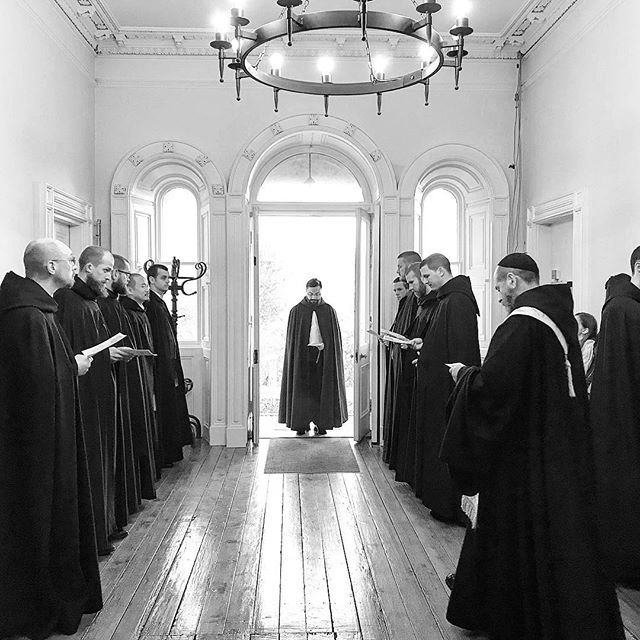Si revera Deum quaerit (LVIII:1)

CHAPTER LVIII. Of the Discipline of receiving Brethren into Religion
Continued from 11 Apr.
Let a senior, one who is skilled in gaining souls, be appointed over him to watch him with the utmost care, and to see whether he is truly seeking God, and is fervent in the Work of God, in obedience and in humiliations. Let all the hard and rugged paths by which we walk towards God be set before him.
Saint Benedict enjoins the Father Master to watch the man newly–come to the monastery. The novice is under scrutiny. The Father Master will observe the novice’s words, actions, and comportment. What drives this man? Why has he come? What is keeping him here? Is his focus on God or on self? Is he truly seeking God? How does he cope with failure? With conflict? With temptation? Is he bodily in the cloister but elsewhere in his heart? Is he growing in faith without seeing, in hope without possessing, and in charity without the immediate gratification of his desires? Does he need to control everything and everyone in order to feel secure? Is he capable of putting aside his preferences and relinquishing control? Is he critical and censorious? Is he simple and childlike? Or is he complicated and calculating? Does he rely on himself or on God? Does he bring his dark and troubling thoughts to his father in Christ and to the tabernacle where Christ waits for him? Or does he allow them to stew inside him, becoming thick, and toxic, and overwhelming? Is he respectful and amiable with his seniors? Is he kind and encouraging with his peers?
If a man comes to the monastery for a reason other than God alone, one of two things will happen. Either his motivations will be purified over time, allowing him to correspond more and more to the graces of the monastic life, or, little by little, he will be driven out of the monastery by his lack of correspondence to the same graces. A wise old Father once told me that no monk remains in the monastery for the reasons that brought him there. By this he meant that “as we go forward in our life and in faith” (Prologue), our hearts are purified and our intentions refined. Sirach says, “Gold and silver are tried in the fire, but acceptable men in the furnace of humiliation” (Ecclesiasticus 2:5).
A monastic wag once said to me: “Postulants think that everyone in the monastery is holy. Novices think that they are holy and that no else measures up. Simply–professed know that they are not holy and think that one else is holy either. Solemnly–professed know that they are not holy, but never lose hope”.
It really does come down to what Cardinal Sarah says: God or nothing. I have, over the years, come to appreciate Psalm 72 as especially suited to the questions and struggles of a monk. There comes a point in every monk’s life when he finds himself compelled to say with the psalmist:
For my heart hath been inflamed, and my reins have been changed: and I am brought to nothing, and I knew not.
I am become as a beast before thee: and I am always with thee.
Thou hast held me by my right hand; and by thy will thou hast conducted me, and with thy glory thou hast received me.
For what have I in heaven? and besides thee what do I desire upon earth?
For thee my flesh and my heart hath fainted away: thou art the God of my heart, and the God that is my portion for ever. (Psalm 72:21–26)
